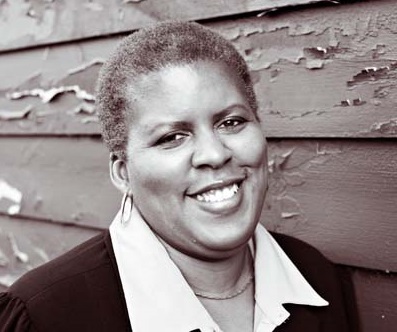 Recently I was a guest on a podcast where we talked about how hard it is to surrender control and get into your flow.
Recently I was a guest on a podcast where we talked about how hard it is to surrender control and get into your flow.
We also discussed the need to do things perfectly — or not do them at all. Lots of us get stuck in that place. It’s what we fall back on when we’re afraid to move forward.
Perfection is all about fear and insecurity. For instance, if I do things perfectly, I won’t be judged. But I can judge someone else’s efforts because, well, I’m perfect, damn it.
It’s like when people preface a remark by saying, “he/she’s not perfect, but…” Duh. Can’t they just like someone without feeling the need to add a disclaimer?
It’s like saying, I know that person isn’t a perfect human being, but I like them anyway. Please, don’t do that. It sounds insincere, and like any back-handed compliment, it really isn’t a compliment. First, tell me who is perfect, and we’ll go from there.
Perfectionism can stop us from doing the things we love. Unfortunately it also allows us to hold others to a high, unreachable standard without taking any risks ourselves.
“Ring the bells that still can ring, Forget your perfect offering, There is a crack in everything, That’s how the light gets in.” – Leonard Cohen
Years ago I was in a class where I had to design a layout for a magazine. I froze after I presented the initial design and received praise from my professor. The horror! As soon as that happened, things went downhill.
What if it didn’t come out the way I pictured it? What if the professor hated it? Wouldn’t I be ashamed after setting those high expectations? Yes to all of those.
So, I procrastinated right up to the night before the assignment was due. Then I quickly threw something together and turned it in. I got a less than sparkling grade, and I deserved it.
But you know what? I consoled myself by saying, if I’d only started sooner, the project would’ve come out great! The end result was I got to beat myself up for not doing the work, while pretending that the work would’ve been perfect, if only. Perfection by proxy.
“Beauty and ingenuity beat perfection hands down, every time.” – Nalo Hopkinson, Sister Mine
After a while I became my own worst enemy when it came to getting projects done. If my sewing projects didn’t have perfect stitches, I’d throw everything out. If I couldn’t find the perfect words for my short stories, I’d write and rewrite and rewrite into infinity.
Meanwhile, I remember writing one story in few hours. When I finished, I submitted it to a magazine and sold it. What was different? It was a new market for me, and I had no idea what would go over. So I wrote down my story, edited it, and sent it in. There was no hand-wringing and second-guessing involved. Done. I was prepared for any outcome without expectation.
Once that happened, it was proof that my perfectionism was hiding my fear. Fear of succeeding, fear of failing. Yes, fear of success too. Because if I was successful, I’d have to repeat that success again and again. Then what? Suppose my perfection wasn’t perfect enough to maintain the success?
See what a trap it is?
Perfectionism was a trap that stopped my forward movement. A place to hide where I could sneer at others who weren’t as perfect. Meanwhile, they were getting things done.
“It is failure that guides evolution; perfection provides no incentive for improvement, and nothing is perfect.” – Colson Whitehead, The Intuitionist
The voice of resistance usually hides behind perfectionism. Check out The War of Art by Steven Pressfield for more on that topic and this book too: The Gifts of Imperfection by Brene Brown.
Be willing to fail and make a mess. Out of the mess, the ideas can grow. Failure really is part of the process of creating. It’s not just a feel-good idea from a motivational poster. It’s true.
Spending hours editing, revising and working on my writing finally taught me that perfectionism is a trap. Years ago I stopped myself from finishing my writing projects because the end result always had to be perfect. Now I know it’s a process — often a very tough process. But it’s worth it.
“I think perfection is ugly. Somewhere in the things humans make, I want to see scars, failure, disorder, distortion.” – Yohji Yamamoto
Love the cracks and the stains and the screw-ups. Get your hands dirty. Be willing to let your heart break. Stop reaching for some detached, perfect state that doesn’t exist and never will.
Let go of perfection and free yourself so you can do your work.
Copyright © 2016 Deborah A. Bailey








